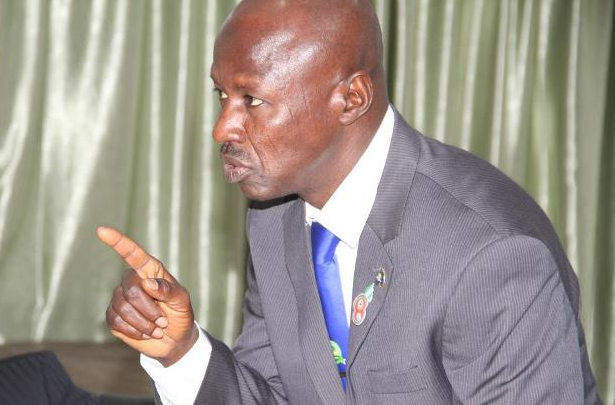Ibrahim Magu, acting chairman of the Economic and Financial Crimes Commission (EFCC), has asked Nigerians to beware of fraudsters using fake online test for COVID-19 to dupe unsuspecting people.
Since the outbreak of the disease, there has been a ‘Do-It-Yourself Test’ message being circulated on the social media.
But Magu on Monday said such messages are from internet fraudsters seeking to exploit the situation.
The EFCC chief said the warning became necessary in view of the increasing number of complaints received from Nigerians who became victims of the antics of internet fraudsters.
“There is no online testing for COVID-19; such online link requesting for personal information to test for the corona virus, or provide a Do-It-Yourself (DIY) method, is part of these fraudulent new methods aimed at defrauding Nigerians of their hard-earned money, please beware,” Magu said.
Advertisement
“Home-bond internet users have complained of receiving several e-mails, sms, Whatsapp messages offering free services such as ‘Do-It-Yourself’ Covid-19 tests; subscription to either Netflix, hulu, DSTV, Government Intervention/Grant of N30, 000) and other tricky offers.
”Some of the fraudulent schemes are coming in the form of links that offer free data or request for the Bank Verification Number, BVN, and account details of their victims, assuring that such victims will be credited with money, as part of the federal government’s palliatives to cushion the effects of the running Stay At Home order.”
He said many of the fraudulent online messages require recipients to click and fill out an online survey and forward same to 10 WhatsApp users.
Advertisement
The messages, he said, are ”embedded with malwares and other malicious codes which when clicked, trigger a program that steals and compromises mails, banking logins passwords, credit related information and other critical data contained on the recipient’s devices”.
He warned that victims stand the risk of losing both confidential information and money since unauthorised access may have been granted to cybercriminals.
To protect oneself from data theft, Magu advised that unsolicited e-mails are not opened. He also advised that a closer look should be taken at URLs for spelling errors before clicking.
Advertisement
Add a comment







